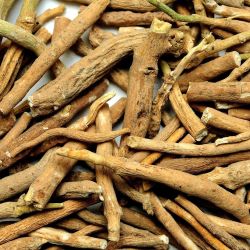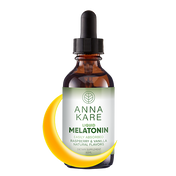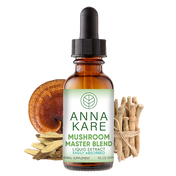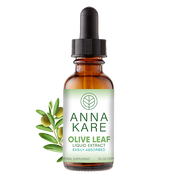
Allium Cepa — Homeopathic Remedy for Allergies, Colds, Sore Throat, and more
Allium Cepa, commonly known as the red onion, is a wonderful homeopathic single remedy for two of the most frequently occurring complaints at the change of seasons — allergies and the common cold. The materia medica indicates Allium Cepa as the homeopathic remedy for allergies with watery discharge from the eyes, sneezing, acrid discharge from the nose, and a tickling cough. Sometimes these allergy symptoms can be confused with the symptoms of a full-blown cold. Because of this overlap, Allium Cepa is one of the best homeopathic remedies to keep handy for any condition with these symptoms.
All Cep
|
Key Symptoms of Allium Cepa
Allium Cepa is strongly indicated for respiratory infections, cough and cold with stuffed, runny nose, and a painful sore throat. For anything which causes pain or discomfort in the nasal and throat passages, think of Allium Cepa. Allium Cepa is also used to relieve asthma, especially allergy induced asthma, and to help the vocal cords and throats of singers and public speakers recover after too much use.
Range of Symptoms & Indications
Interested in a comprehensive list of homeopathic indications for Allium Cepa? Check out the list below for some of the main indications.
- Burning, stinging eyes with bland discharge
- Runny nose with watery, acrid secretion
- Raw, sore nasal passages and throat
- Frequent sneezing
- Cold that settles in chest and tends to bronchitis
- Bronchitis in children
- Cough that pains the throat
- Laryngitis
- Tickle in throat that turns into cough from inhaling cold air
- Head cold that travels from left side to right
- Headache with cold
- Molars ache from cold
- Whooping cough with indigestion, bloating, diarrhea
- Bloating especially before dinner, flatulence
- Neuralgia

Modalities, Desires, & Aversions
In homeopathy, modalities are external conditions which make a condition improve or worsen. Conditions which are treated by Allium Cepa will get worse in a warm room, and the symptoms will often increase in the evening. The Allium Cepa cold will clear up a bit in the open air, though as mentioned in the list above, a cough can be triggered when cold air is inhaled. There will often be a desire to rub your eyes, but the rubbing will make your eyes feel worse. Blinking will make your eyes feel better. An important emotional symptom which can point to a need for Allium Cepa when accompanied by the correct physical symptoms is a fear of pain becoming unendurable.
All Cep
|
Allium Cepa at Homeopathy Store
At HomeopathyStore, all our single remedies are lactose free, vegan, and kosher certified through KOF-K in New Jersey. Our liquid sprays are ideal for people with food sensitivities and allergies. They come in many potencies, while less common potencies can be custom ordered. HomeopathyStore offers one of the largest selections of single remedies available.
Other Uses and Home Remedies
Onions can also be used therapeutically in the following ways:
- Add a healthy portion of chopped or grated onions to hot soup. Let the onions steep in the soup or broth for several minutes. This is in addition to the onions cooked along with the soup, as steeping a bit of fresh onions towards the end of the cooking time preserves some of the biggest benefits of the fresh onion.
- A steam inhalation of raw onions is marvelous for an attack of rhinitis or sinusitis. Add the chopped raw onions to a bowl of steaming hot water and inhale the onion infused steam for several minutes.

History of Allium Cepa
The origins of the wild onion are unknown, but records show that around 3000 B.C, early Chinese civilizations were already cultivating garden variety onions. Allium Cepa figured largely in ancient medicine with references in Greek, Roman, and 6th century Indian medical documents. In 1847, Constantine Hering, the German-born homeopath instrumental in furthering homeopathy in the United States, referenced Allium Cepa’s use by previous civilizations throughout the centuries. Hering introduced the remedy Allium Cepa to the homeopathic community, after which several provings were made of the remedy.
Homeopathic Provings
A homeopathic proving is a method by which homeopaths can identify the guiding symptoms of a remedy. Hahnemann, the father of Homeopathy, conducted the first recorded proving using China Officinalis, or quinine. He performed provings for numerous remedies in use today, using himself and other volunteers as test subjects. Modern day provings are referred to as HPTs (homeopathic pathogenetic trials) and follow strict guidelines to ensure the safety of the provers, quality control, and impartiality on the part of both the testers and the provers. The test substance is administered repeatedly until symptoms begin to emerge. All participants are in good health and record all symptoms — mental, emotional, and physical — in journals, which create a body of data for homeopaths to organize into common symptoms for the remedy. A prover will also test the symptoms against different modalities (heat, cold, reclining, increased activity, etc.) to ascertain if symptoms recede or increase. Proving does not cause any damage to those being tested, as all symptoms disappear once the substance is no longer administered. Needless to say, a substance must have many provings done before being admitted to the homeopathic materia medica.
The Onion in Ancient History
The ancient Egyptians revered the onion not just for its versatile culinary uses, but as an important symbol in their religion, art, and burial practices. Onions were used in the mummification process and as part of the funeral gifts left in the tombs of the wealthy. Wall paintings depict priests or rulers holding onions which represented eternal life and regeneration for the deceased.
The Greeks used onions as part of the training regimen for Olympic athletes. These first century Olympic hopefuls ate, drank, and rubbed onions on their bodies to prepare themselves for the events.
Please note: Product descriptions have not been evaluated by the Food and Drug Administration.





















